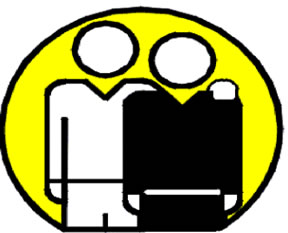You are here
- Home
- Conferences
- Conference 2013
- Citizen advocacy - a way to make a positive difference
Citizen advocacy - a way to make a positive difference

Barbara Perry
Citizen Advocate
- In the past learning disabled people were not valued by society. They were put away in large hospitals called institutions. They were treated badly.
- Now services can do harm to the people they support. Services have the power and control. They can get caught up in rigid ways of working. This can lead them to abuse the people they support. Funding cuts are making things worse.
- Citizen advocacy was set up by Wolf Wolfensberger to help to stop services doing harm to people.
- Citizen advocacy is where a volunteer stands beside a learning disabled person and gets to know them well. The citizen advocate values their advocate partner. They speak up for their partner. This can help their advocate partner to get better support. It can stop abuse.
- Julie and Barbara: about our citizen advocacy partnership.
- A positive difference: Now more paid advocates help people. But this help is short term and paid advocates are part of services. Citizen advocates are volunteers so working practices don't get in the way. Citizen advocates meet the long term needs of their partners. Citizen advocates can stop abuse and they can stop abuse from developing.
Contact us
About the Group
If you woud like to get in touch with the Social History of Learning Disability (SHLD) Research Group, please contact:
Liz Tilley
Chair of the Social History of Learning Disability (SHLD) Research Group
School of Health, Wellbeing and Social Care
Faculty of Wellbeing, Education and Language Studies
The Open University
Walton Hall
Milton Keynes
MK7 6AA
About the website
If you have any feedback or would like to report a problem with the website, please contact WELS-Research-Admin@open.ac.uk.